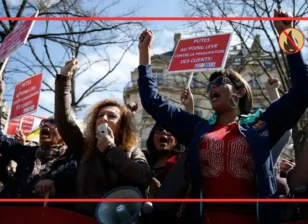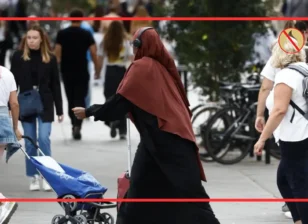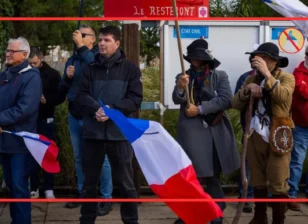Causes of Human Trafficking in France
Millions of men, women, and children continue to suffer from human trafficking, a contemporary kind of slavery, all throughout the world, even in the ostensibly developed and wealthy country of France. Despite strong legislative protections and international collaboration, there are still many variables that transcend social, economic, and political spheres that contribute to this chronic problem.
Human trafficking in France is a multifaceted issue involving coercion, deception, force, and weaknesses exploited by traffickers. Understanding these underlying factors is crucial for developing effective preventative measures and providing robust support networks for victims.
Historical Context
France, historically renowned for its cultural heritage, progressive ideals, and economic prowess, has faced its own challenges in combating the menace of human trafficking. The country has made significant progress in addressing human trafficking, but the complex factors driving it persist, including socio-political shifts, economic changes, and global events, which have significantly shaped its trafficking dynamics.
Causes of Human Trafficking in France
● Economic Hardship and Lack of Social Safety Net
Economic hardship emerges as a crucial element in the complex web of causes that makes people more susceptible to human trafficking. People, especially those from marginalised areas, are more receptive to deceptive claims of rich work prospects when they are faced with economic difficulty. The absence of a strong social safety net exacerbates this vulnerability by giving many people few options and increased despair, which makes them easy targets for traffickers.
● Political Instability and Natural Disasters
The risk of human trafficking has also been linked to instances of political unrest and natural calamities. Communities struggle with disrupted livelihoods and reduced access to essential resources in the wake of upheavals and catastrophes, creating a climate that is ripe for abuse. People may become more vulnerable and more likely to fall into the hands of traffickers as a result of the displacement. The chaos caused by these events, who frequently take advantage of their desperate situation for their own gain.
● Psychological Vulnerability and Trauma
Another key contributing factor to human trafficking is the psychological weaknesses brought on by various types of trauma. People who have experienced past traumas, such as physical or emotional abuse, may experience low self-esteem and a sense of hopelessness, making them vulnerable to the manipulation techniques used by traffickers. A point of entry is created for traffickers looking to compel, manipulate, and control their victims by the intricate interplay of psychological scars and vulnerabilities.
● Myths and Misconceptions
The persistence of human trafficking is aided by the many myths and misunderstandings surrounding it. Communities frequently lack awareness and comprehension due to misguided attitudes and inaccurate information, which fosters a situation where crucial signs of trafficking go unreported or are misinterpreted. This ignorance can make it more difficult to find victims and foil the cunning plans of traffickers, which feeds the vicious cycle of exploitation.
● Language Barriers and Fear of Law Enforcement
Language problems might increase the danger of trafficking, especially in diverse groups. A person’s isolation and difficulty accessing essential resources might be caused by a lack of language skills, which increases their dependence on intermediaries who might not be trustworthy. Additionally, victims may be discouraged from seeking aid due to a fear of law enforcement. It may be brought on by a lack of trust or previous unfavourable experiences. This gives traffickers carte blanche to continue their illegal activities.
Addressing the Complexities: Saving Lives and Ensuring Public Safety
Combating human trafficking demands a multifaceted approach that encompasses both proactive measures and responsive interventions. Building resilient communities equipped to identify trafficking indicators is crucial. Strengthening support networks, including community-based organisations and law enforcement, is essential for timely victim identification and rescue. Comprehensive educational campaigns are also necessary to raise public awareness.
Addressing trafficking’s root causes necessitates economic stability and social safety nets. Sustainable employment and welfare programs can mitigate traffickers’ vulnerabilities. Providing accessible psychological support services can help heal and resilience in vulnerable populations.
Conclusion
Human trafficking remains a grave global challenge that permeates various societies, including France, despite its commitment to human rights and social justice. By delving into the intricate causes that underpin this crime, we can develop holistic strategies that not only combat trafficking. It also foster resilient communities that are equipped to safeguard the most vulnerable among us.
Saving lives and ensuring public safety necessitates a collective effort to dismantle the systemic vulnerabilities and misconceptions that perpetuate this heinous practice. Only through concerted action and unwavering advocacy can we begin to eradicate the scourge of human trafficking, restoring dignity and freedom to those who have been unjustly exploited and oppressed.





